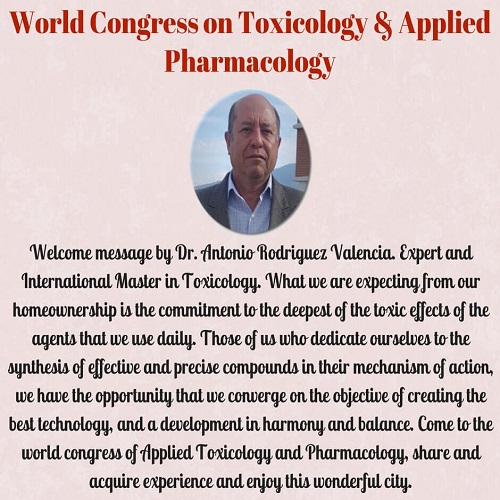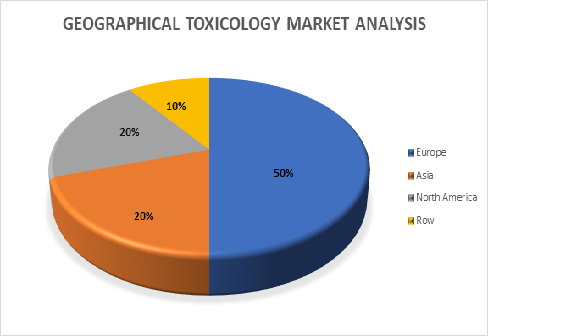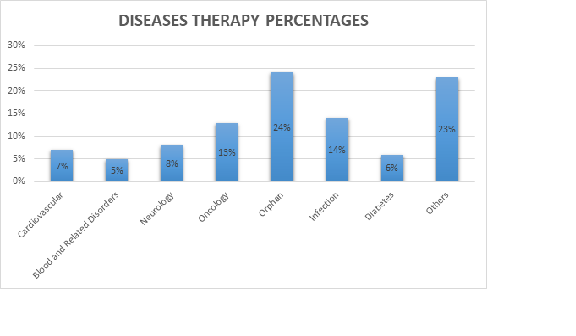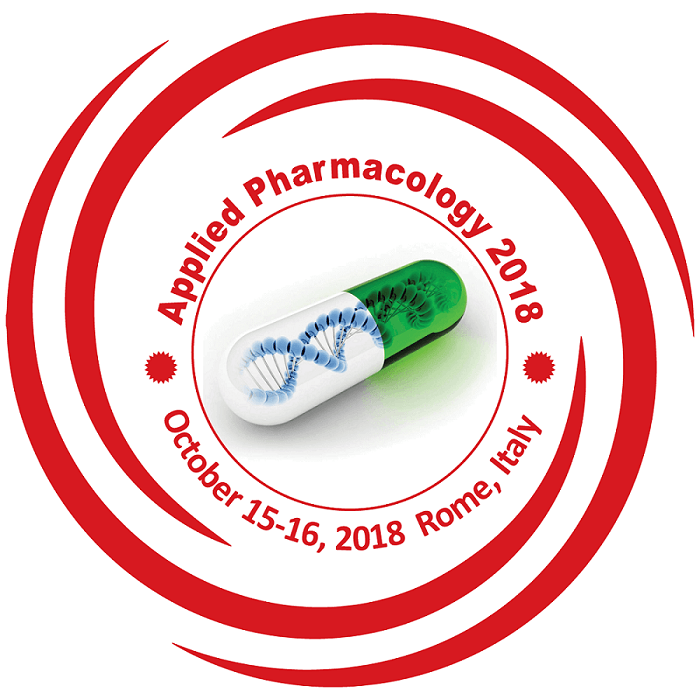Conference Information
Welcome Message

About Conference
PULSUS takes immense pleasure in inviting all the participants from across the globe to attend “World Congress on Toxicology and Applied Pharmacology” during October 15-16, 2018 at Rome, Italy. This comprises of proficient keynote presentations, verbal speeches, productive poster presentations and exhibitions providing insights to the importance and efficiency of toxicology and pharmacology
Pulsus Group is an internationally renowned peer-review publisher in scientific, technical, and medical journals established in the year 1984 with offices in Ontario, Canada and Hyderabad, India has acquired Andrew John Publishing and openaccessjournals.com to expand its Open Access Publishing through its 50+ journals in association with 20+ International medical and scientific societies.
Applied Pharmacology 2018:
Conference theme “Expanding the Possibilities in Toxicology and Pharmacology”.
Applied Pharmacology 2018 is the primary event that brings together a unique and international experts, researchers and decision makers both from academia and industry from all over the world to exchange their knowledge, expertise and research innovations in the arena of Toxicology and Applied Pharmacology.
Applied Pharmacology 2018 is an exclusive platform for new researchers, scholars, Toxicologists, Pharmacologists, students and educators to show case their novel ideas and discuss the most recent innovations, trends and key concerns adopted in the field of pharmacology and toxicology. The two days of program will include keynote presentations, oral presentations, and poster presenters on the advanced techniques as well as papers in all the fields of Toxicology and Pharmacology.
Target Audience:
- Toxicology Professionals
- Pharmacology Professionals
- Toxicologists
- Pharmacologists
- Clinical Toxicologists
- Medical Colleges
- Research faculty
- Academic Scientists
- Students
- Diagnostic laboratory professionals
- Business Entrepreneurs
- Industry professionals
- Directors/Managers/CEO’s
- Presidents & Vice Presidents
- Brand Manufacturers/ Marketers of Consumer Products
- Marketing, Advertising and Promotion Agency Executives
Why to attend?
- 10+ Keynote Speaker Session
- 50+ speaker faculty over 2 full days sharing Evidence Based Nursing practice
- 5+ Workshops
- 13 Interactive sessions
- Mixture of Health care units and Academia Delegates
- Networking
Scientific Sessions
Session 01: Clinical Toxicology
Clinical toxicology is a branch of toxicology which deals with the impact of drugs and other chemicals effects on humans. The Clinical toxicologist plays a role which is deals with the traditional therapeutic role, that is the management of the chronic and acute poisoning in patients. Clinical toxicologist will provide an advice by a poisons information service and will informed about with the occupational and environmental impact of a wide range of chemicals. Clinical toxicologists are also be involved in the development of procedure for the management of major chemical disasters, the evalution of antidotes used against chemical warfare agents and the evaluation of the pesticides and chemicals resulting from a single exposure or chronic low level exposure. Amphetamines, , Barbiturates, Opiates etc., drugs arre used
Related Conferences:
Global Experts Meeting on Neuropharmacology, November 15-16, 2018 Berlin, Germany, Global Summit on Toxicology and Forensic Science, November 08-09, 2018, Auckland, New Zealand, Annual Meeting of American College of Toxicology, November 04-07, 2018, West palm Beach, Florida, International Congress on Toxicology, July 15- 18, 2019, Honolulu, Hawaii, World Summit on Toxicology & Applied Pharmacology, June 03-04, 2019 at Berlin, Germany, Euro Summit on Toxicology and Pharmacology, May 13-15, 2019 Rome, Italy, Pharmacology for Advance Practice Clinicians, November 5-11, 2018, Las Vegas, USA
Related Societies:
American Academy of Veterinary Pharmacology and Therapeutics, American Board of Clinical Pharmacology, Austrian Pharmacological Society, British Association for Psychopharmacology, British Pharmacological Society, Dutch Pharmacological Society, French Society of Pharmacology
Session 02: Medical Toxicology
Medical Toxicology is a branch of toxicology that deals with medicines to treat the poisoned patients. It focuses on diagnosis, management and prevention from the adverse effects that occurs from the medication, toxic exposures and biological agents. Medical toxicologists are physicians specialize in treatment, prevention, evaluation from exposures to drugs and chemicals and from biological and radiological agents. Medical Toxicology includes in important arena like acute drug poisoning, Drug abuse, adverse drug events, chemicals and hazardous materials, Venom bites and stings. Medical toxicology branches are like neurotoxicology, nephrotoxicology etc.,
Related Conferences:
World Congress on Pharmacology and Toxicology, November 14-15, 2018, Melbourne, Australia, World Congress on Nursing Pharmacology and Health Care Management, September 13-14, 2018, Dubai, UAE, International Conference on Toxicology and Applied Pharmacology, November 5-7, 2018 at Rome, Italy, International Congress of Toxicology (ICTXV), July 15–18, 2019, Honolulu, Hawaii, USA, International Conference on Toxicology and Risk Assessment, March 20-22, 2019, Frankfurt, Germany, International Conference on Clinical Pharmacology & Drug Discovery, October 30-31, 2018, Rome, Italy, World Congress on Pharmacology & Toxicological Studies, November 8-10, 2018, Edinburgh, Scotland
Related Societies:
Italian Society of Pharmacology, Japanese Pharmacological Society, Korean Society of Applied Pharmacology, British Toxicology Society, Chinese Society of Toxicology, American Academy of Clinical Toxicology, Toxicology Society of Nigeria
Session 03: Heavymetals Toxicology
Heavymetals toxicology is a branch of toxicology which deals with the metal toxins like lead, cadmium, arsenics, mercury, Chromium. . Heavymetals are become toxic when they are not metabolised by the body and accumulate in the soft tissues. Heavymetals can enter the human body food, water, air or absorption through the skin when they come in contact with humans in agriculture, manufacturing, pharmaceutical, industrial and residential settings. Ingestion is the most common route of exposure in Children.
Related Conferences:
Annual Congress on Inhalation Toxicology, December 13-14, 2018, Dubai, UAE, Global Summit on Environmental Toxicology and Pharmacology, September 17-18, 2018, Singapore, International Congress on In Vitro Toxicology, October 15-18, 2018, Berlin, Germany, Euro summit on Toxicology and Pharmacology, November 19-21, 2018, Rome, Italy, International Conference on Pharmacology, Pharmacodynamics & Drug Metabolism, November 26-27, 2018, San Francisco, USA, International Conference on Advances in Pharmacology & Toxicology, December 13-14, 2018, Bangkok, Thailand, World Congress and Expo on Toxicology and Pharmacology, November 15-17, 2018, Rome, Italy
Related Societies:
American College of Toxicology, German Toxicology Society Federation of European Societies of Toxicology, American College of Medical Toxicology, African Society for Toxicological Sciences, Croatian Society of Toxicology, International Society of Regulatory Toxicology and Pharmacology
Session 04: Pesticide Toxicology
Pesticide toxicology is coming under the toxicology branch. Pesticide is used to control the pests. Pests may be targets insects, vegetation, fungi, etc., Pesticides are not only control pests and poisons to humans. Some of the pesticides are very poisonous, very harmful, they are even kills humans. Pesticides can annoy skin, nose, eyes and mouth. Some of them are non-toxic ad non-poisonous. Pesticide toxicology is used to prevention, treatment, and medication of the toxic substances. Pesticide substance are like organophosphorus poisoning.
Related Conferences:
Global Experts Meeting on Neuropharmacology, November 15-16, 2018 Berlin, Germany, Global Summit on Toxicology and Forensic Science, November 08-09, 2018, Auckland, New Zealand, Annual Meeting of American College of Toxicology, November 04-07, 2018, West palm Beach, Florida, International Congress on Toxicology, July 15- 18, 2019, Honolulu, Hawaii, World Summit on Toxicology & Applied Pharmacology, June 03-04, 2019 at Berlin, Germany, Euro Summit on Toxicology and Pharmacology, May 13-15, 2019 Rome, Italy, Pharmacology for Advance Practice Clinicians, November 5-11, 2018, Las Vegas, USA
Related Societies:
American Academy of Veterinary Pharmacology and Therapeutics, American Board of Clinical Pharmacology, Austrian Pharmacological Society, British Association for Psychopharmacology, British Pharmacological Society, Dutch Pharmacological Society, French Society of Pharmacology
Session 05: Toxicogenomics
Toxicogenomics is a branch of science that field with the interpretation, collection, storage of information about the gene and protein activity with tissues and particular cells of an organism in response to toxic substances. Toxicogenomics is combines with toxicology, proteomics, metabolomics. Toxicogenomics attempts to prove molecular mechanisms evolved in the expression of toxicity, and to derive molecular expression pattern (i.e., molecular biomarkers) that predict toxicity.
Related Conferences:
World Congress on Pharmacology and Toxicology, November 14-15, 2018, Melbourne, Australia, World Congress on Nursing Pharmacology and Health Care Management, September 13-14, 2018, Dubai, UAE, International Conference on Toxicology and Applied Pharmacology, November 5-7, 2018 at Rome, Italy, International Congress of Toxicology (ICTXV), July 15–18, 2019, Honolulu, Hawaii, USA, International Conference on Toxicology and Risk Assessment, March 20-22, 2019, Frankfurt, Germany, International Conference on Clinical Pharmacology & Drug Discovery, October 30-31, 2018, Rome, Italy, World Congress on Pharmacology & Toxicological Studies, November 8-10, 2018, Edinburgh, Scotland
Related Societies:
Italian Society of Pharmacology, Japanese Pharmacological Society, Korean Society of Applied Pharmacology, British Toxicology Society, Chinese Society of Toxicology, American Academy of Clinical Toxicology, Toxicology Society of Nigeria
Session 06: Industrial Toxicology
Industrial Toxicology is a branch of toxicology that studies about the harmful chemical effects on humans in the working place, products produced by companies and wastes created by manufacturing companies. Industrial toxicology that deals with the adverse effects of all forms chemicals, physical agents and processes including drugs and medications. Some of the industrial toxins like Irritants, Asphyxiants, Systemic poisons etc.,
Related Conferences:
Annual Congress on Inhalation Toxicology, December 13-14, 2018, Dubai, UAE, Global Summit on Environmental Toxicology and Pharmacology, September 17-18, 2018, Singapore, International Congress on In Vitro Toxicology, October 15-18, 2018, Berlin, Germany, Euro summit on Toxicology and Pharmacology, November 19-21, 2018, Rome, Italy, International Conference on Pharmacology, Pharmacodynamics & Drug Metabolism, November 26-27, 2018, San Francisco, USA, International Conference on Advances in Pharmacology & Toxicology, December 13-14, 2018, Bangkok, Thailand, World Congress and Expo on Toxicology and Pharmacology, November 15-17, 2018, Rome, Italy
Related Societies:
American College of Toxicology, German Toxicology Society Federation of European Societies of Toxicology, American College of Medical Toxicology, African Society for Toxicological Sciences, Croatian Society of Toxicology, International Society of Regulatory Toxicology and Pharmacology
Session 07: Ecotoxicology
Ecotoxicology is a branch of toxicology that deals with ecology, physiology, analytical chemistry, molecular biology, and mathematics. Ecotoxicology view at the effects of contaminants including pesticides on individuals, population, natural communities and ecosystems. Ecosystems include ponds, rivers, grasslands, forests and desserts. Community effects on living things and environment effects are live in form ecosystems. Ecotoxicologists must study what happens to the pesticides themselves, how long they last, where they go in the environment, and how they finally breakdown.
Related Conferences:
Global Experts Meeting on Neuropharmacology, November 15-16, 2018 Berlin, Germany, Global Summit on Toxicology and Forensic Science, November 08-09, 2018, Auckland, New Zealand, Annual Meeting of American College of Toxicology, November 04-07, 2018, West palm Beach, Florida, International Congress on Toxicology, July 15- 18, 2019, Honolulu, Hawaii, World Summit on Toxicology & Applied Pharmacology, June 03-04, 2019 at Berlin, Germany, Euro Summit on Toxicology and Pharmacology, May 13-15, 2019 Rome, Italy, Pharmacology for Advance Practice Clinicians, November 5-11, 2018, Las Vegas, USA
Related Societies:
American Academy of Veterinary Pharmacology and Therapeutics, American Board of Clinical Pharmacology, Austrian Pharmacological Society, British Association for Psychopharmacology, British Pharmacological Society, Dutch Pharmacological Society, French Society of Pharmacology
Session 08: Toxicity Testing
Toxicity testing is comes under the branch of toxicology that deals with the examination, evaluation, and interpretation of the harmful effects of a substance by testing it on fish, invertebrate animals or small mammals, and extrapolating the test results to determine the quantity that will produce similar effects in humans and other animals. It also deals with the test of poisoning effect people and some of the tests are acute toxicity studies, chronic studies Subchronic studies, developmental toxicity studies etc.,
Related Conferences:
World Congress on Pharmacology and Toxicology, November 14-15, 2018, Melbourne, Australia, World Congress on Nursing Pharmacology and Health Care Management, September 13-14, 2018, Dubai, UAE, International Conference on Toxicology and Applied Pharmacology, November 5-7, 2018 at Rome, Italy, International Congress of Toxicology (ICTXV), July 15–18, 2019, Honolulu, Hawaii, USA, International Conference on Toxicology and Risk Assessment, March 20-22, 2019, Frankfurt, Germany, International Conference on Clinical Pharmacology & Drug Discovery, October 30-31, 2018, Rome, Italy, World Congress on Pharmacology & Toxicological Studies, November 8-10, 2018, Edinburgh, Scotland
Related Societies:
Italian Society of Pharmacology, Japanese Pharmacological Society, Korean Society of Applied Pharmacology, British Toxicology Society, Chinese Society of Toxicology, American Academy of Clinical Toxicology, Toxicology Society of Nigeria
Session 09: Pharmacokinetic and Pharmacodynamic
Pharmacokinetics means what body does to the drug. Pharmacokinetics is the study of ADME it means absorption, distribution, metabolism, excretion. Pharmacokinetics is used to know about how a drug is absorbing, metabolising, excreting,distributing. It refers that the movement of drug into, through and out of the body. At how much time of course taken the drug for absorption, metabolism, distribution and metabolism. Pharmacokinetics is also used in the study of in-vitro and in-vivo studies
Pharmacodynamic means what drug does to the body. Pharmacodynamics is to study about how a drug affects its target sites in a dose and time dependent fashion. Pharmacodynamics is to about the physiological effects of drug, mechanisms of drug action, and biochemical effectsof drug and the relationship between drug concentration and effect.
Related Conferences:
Annual Congress on Inhalation Toxicology, December 13-14, 2018, Dubai, UAE, Global Summit on Environmental Toxicology and Pharmacology, September 17-18, 2018, Singapore, International Congress on In Vitro Toxicology, October 15-18, 2018, Berlin, Germany, Euro summit on Toxicology and Pharmacology, November 19-21, 2018, Rome, Italy, International Conference on Pharmacology, Pharmacodynamics & Drug Metabolism, November 26-27, 2018, San Francisco, USA, International Conference on Advances in Pharmacology & Toxicology, December 13-14, 2018, Bangkok, Thailand, World Congress and Expo on Toxicology and Pharmacology, November 15-17, 2018, Rome, Italy
Related Societies:
American College of Toxicology, German Toxicology Society Federation of European Societies of Toxicology, American College of Medical Toxicology, African Society for Toxicological Sciences, Croatian Society of Toxicology, International Society of Regulatory Toxicology and Pharmacology
Session 10: Clinical Pharmacology
Clinical pharmacology is a scientific correction that includes all aspects of the relationship between drugs and humans. The clinical pharmacologists are used to refer to the physicians who are specialists in clinical pharmacology. Clinical pharmacology is a multidisciplinary science that includes professionals with a variety of scientific skills including medicine, Pharmacology, nursing, pharmacy and biomedical science. They take several years of post-graduation training in many aspects of the above relationship including healthcare,, teaching and research.
Related Conferences:
Global Experts Meeting on Neuropharmacology, November 15-16, 2018 Berlin, Germany, Global Summit on Toxicology and Forensic Science, November 08-09, 2018, Auckland, New Zealand, Annual Meeting of American College of Toxicology, November 04-07, 2018, West palm Beach, Florida,International Congress on Toxicology, July 15- 18, 2019, Honolulu, Hawaii, World Summit on Toxicology & Applied Pharmacology, June 03-04, 2019 at Berlin, Germany, Euro Summit on Toxicology and Pharmacology, May 13-15, 2019 Rome, Italy, Pharmacology for Advance Practice Clinicians, November 5-11, 2018, Las Vegas, USA
Related Societies:
American Academy of Veterinary Pharmacology and Therapeutics, American Board of Clinical Pharmacology, Austrian Pharmacological Society, British Association for Psychopharmacology, British Pharmacological Society, Dutch Pharmacological Society, French Society of Pharmacology
Session 11: Pharmacotherapeutics
Pharmacotherapeutics is to study about the therapeutic uses and adverse effects of drugs in patients. The Emphasis of pharmacotherapy is patient, not the drug or the disease. Therapeutic variability may be produced by differences in patient body size and composition, age, disease, environmental factors, and genetic influences. A systematic understanding of pharmaceutical sciences is vital in providing appropriate pharmacotherapy, and in anticipating and avoiding drug interactions.
Related Conferences:
World Congress on Pharmacology and Toxicology, November 14-15, 2018, Melbourne, Australia, World Congress on Nursing Pharmacology and Health Care Management, September 13-14, 2018, Dubai, UAE, International Conference on Toxicology and Applied Pharmacology, November 5-7, 2018 at Rome, Italy, International Congress of Toxicology (ICTXV), July 15–18, 2019, Honolulu, Hawaii, USA, International Conference on Toxicology and Risk Assessment, March 20-22, 2019, Frankfurt, Germany, International Conference on Clinical Pharmacology & Drug Discovery, October 30-31, 2018, Rome, Italy, World Congress on Pharmacology & Toxicological Studies, November 8-10, 2018, Edinburgh, Scotland
Related Societies:
Italian Society of Pharmacology, Japanese Pharmacological Society, Korean Society of Applied Pharmacology, British Toxicology Society, Chinese Society of Toxicology, American Academy of Clinical Toxicology, Toxicology Society of Nigeria
Session 12: Molecular Pharmacology
Molecular pharmacology is a branch of pharmacology that deals with the reactions of drugs on target molecules. It also combines with the fields like bio chemistry, cell biology, Physiology, chemical biology and bio medicine. Molecular Pharmacology is advanced and specialized field that requires the acquaintance of variety of science subjects. It also combines with the Systems Pharmacology which examines the positive and negative effects of drugs on body systems in human body
Related Conferences:
Global Experts Meeting on Neuropharmacology, November 15-16, 2018 Berlin, Germany, Global Summit on Toxicology and Forensic Science, November 08-09, 2018, Auckland, New Zealand, Annual Meeting of American College of Toxicology, November 04-07, 2018, West palm Beach, Florida, International Congress on Toxicology, July 15- 18, 2019, Honolulu, Hawaii, World Summit on Toxicology & Applied Pharmacology, June 03-04, 2019 at Berlin, Germany, Euro Summit on Toxicology and Pharmacology, May 13-15, 2019 Rome, Italy, San Antonio, Texas, USA, Pharmacology for Advance Practice Clinicians, November 5-11, 2018, Las Vegas, USA
Related Societies:
American Academy of Veterinary Pharmacology and Therapeutics, American Board of Clinical Pharmacology, Austrian Pharmacological Society, British Association for Psychopharmacology, British Pharmacological Society, Dutch Pharmacological Society, French Society of Pharmacology
Session 13: Cardiovascular Pharmacology
Cardiovascular Pharmacology is a branch of pharmacology that deals with the drugs uses to cardiovascular diseases or the circulatory and vascular systems. Many classes of cardiovascular agents are available to treat the various cardiovascular conditions. Drugs that are used to the cardiovascular disorders are Anti-coagulants, Beta blockers, calcium channel blockers, Diuretics, Vasodilators, etc.,
Related Conferences:
World Congress on Pharmacology and Toxicology, November 14-15, 2018, Melbourne, Australia, World Congress on Nursing Pharmacology and Health Care Management, September 13-14, 2018, Dubai, UAE, International Conference on Toxicology and Applied Pharmacology, November 5-7, 2018 at Rome, Italy, International Congress of Toxicology (ICTXV), July 15–18, 2019, Honolulu, Hawaii, USA, International Conference on Toxicology and Risk Assessment, March 20-22, 2019, Frankfurt, Germany, International Conference on Clinical Pharmacology & Drug Discovery, October 30-31, 2018, Rome, Italy, World Congress on Pharmacology & Toxicological Studies, November 8-10, 2018, Edinburgh, Scotland
Related Societies:
Italian Society of Pharmacology, Japanese Pharmacological Society, Korean Society of Applied Pharmacology, British Toxicology Society, Chinese Society of Toxicology, American Academy of Clinical Toxicology, Toxicology Society of Nigeria
Session 14: Pharmacogenetics
Pharmacogenetics is deals with the genetic factors that influence drug response and toxicity. Pharmacogenetics studies of how people respond differently to medicines to their genetic inheritance. The term pharmacogenetics was derived from the words pharmacology and genetics. The word pharmacology means the study of how drugs work in the body. The word genetics means the study of how traits are inherited. The goal of pharmacogenetics is to understand how someone’s genetic make-up determines, how well a medicine works in his or her body, as well as what adverse effects are likely to occur.
Related Conferences:
Annual Congress on Inhalation Toxicology December 13-14, 2018, Dubai, UAE, Global Summit on Environmental Toxicology and Pharmacology, September 17-18, 2018, Singapore, International Congress on In Vitro Toxicology, October 15-18, 2018, Berlin, Germany, Euro summit on Toxicology and Pharmacology, November 19-21, 2018, Rome, Italy, International Conference on Pharmacology, Pharmacodynamics & Drug Metabolism, November 26-27, 2018, San Francisco, USA, International Conference on Advances in Pharmacology & Toxicology, December 13-14, 2018, Bangkok, Thailand, World Congress and Expo on Toxicology and Pharmacology, November 15-17, 2018, Rome, Italy
Related Societies:
American College of Toxicology, German Toxicology Society Federation of European Societies of Toxicology, American College of Medical Toxicology, African Society for Toxicological Sciences, Croatian Society of Toxicology, International Society of Regulatory Toxicology and Pharmacology
Session 15: Pharmacoepidemology
Pharmacoepidemology is a branch of Pharmacology that deals with the use and effect of large numbers of people. The term pharmacoepidemology combines with the words pharmacology and epidemiology. The word pharmacology deals with the study of medicine. The word epidemiology is the study of the factors that determine the occurrence and distribution of diseases in populations. Epidemiology can often be divided into infectious and chronic disease epidemiology. Epidemiologists are to study how much disease is in a given area, who gets it, and what specific factors put individuals at risk.
Related Conferences:
Global Experts Meeting on Neuropharmacology, November 15-16, 2018 Berlin, Germany, Global Summit on Toxicology and Forensic Science, November 08-09, 2018, Auckland, New Zealand, Annual Meeting of American College of Toxicology, November 04-07, 2018, West palm Beach, Florida, International Congress on Toxicology, July 15- 18, 2019, Honolulu, Hawaii, World Summit on Toxicology & Applied Pharmacology, June 03-04, 2019 at Berlin, Germany, Euro Summit on Toxicology and Pharmacology, May 13-15, 2019 Rome, Italy, Pharmacology for Advance Practice Clinicians, November 5-11, 2018, Las Vegas, USA
Related Societies:
American Academy of Veterinary Pharmacology and Therapeutics, American Board of Clinical Pharmacology, Austrian Pharmacological Society, British Association for Psychopharmacology, British Pharmacological Society, Dutch Pharmacological Society, French Society of Pharmacology
Session 16: Psychopharmacology
Psychopharmacology is a branch of pharmacology that deals with the use of medications with treating the mental disorders. Psychopharmacologists want to know all the clinically relevant principles of pharmacokinetics and pharmacodynamics. Psychopharmacology includes Protein binding, Half-life, Polymorphic genes, Drug-Drug Interactions. Psychopharmacologist are the physician who can treat patients with psychotropic medicines. Psychopharmacologist wants to have a high level of understanding and experts in pharmacology and as a psychiatrist.
Related Conferences:
World Congress on Pharmacology and Toxicology, November 14-15, 2018, Melbourne, Australia, World Congress on Nursing Pharmacology and Health Care Management, September 13-14, 2018, Dubai, UAE, International Conference on Toxicology and Applied Pharmacology, November 5-7, 2018 at Rome, Italy, International Congress of Toxicology (ICTXV), July 15–18, 2019, Honolulu, Hawaii, USA, International Conference on Toxicology and Risk Assessment, March 20-22, 2019, Frankfurt, Germany, International Conference on Clinical Pharmacology & Drug Discovery, October 30-31, 2018, Rome, Italy, World Congress on Pharmacology & Toxicological Studies, November 8-10, 2018, Edinburgh, Scotland
Related Societies:
Italian Society of Pharmacology, Japanese Pharmacological Society, Korean Society of Applied Pharmacology, British Toxicology Society, Chinese Society of Toxicology, American Academy of Clinical Toxicology, Toxicology Society of Nigeria
Session 17: Immunopharmacology
Immunopharmacology is a branch of pharmacology that deals with the drugs and their side effects to immune system. Immunopharmacology was contains to major componenets they are innative and adaptive. The word Immunpopharmacology is derived from the two words immune and pharmacology. Andor Szentivanyi was termed the word immunopharmacology in 1959 he used to elate the function of the nervous system to the immune system in 1960’s the word immunopharmacology was appeared again for the radioimmunoassay of drugs and hormones.
Related Conferences:
Annual Congress on Inhalation Toxicology, December 13-14, 2018, Dubai, UAE, Global Summit on Environmental Toxicology and Pharmacology, September 17-18, 2018, Singapore, International Congress on In Vitro Toxicology, October 15-18, 2018, Berlin, Germany, Euro summit on Toxicology and Pharmacology, November 19-21, 2018, Rome, Italy, International Conference on Pharmacology, Pharmacodynamics & Drug Metabolism, November 26-27, 2018, San Francisco, USA, International Conference on Advances in Pharmacology & Toxicology, December 13-14, 2018, Bangkok, Thailand, World Congress and Expo on Toxicology and Pharmacology, November 15-17, 2018, Rome, Italy
Related Societies:
American College of Toxicology, German Toxicology Society Federation of European Societies of Toxicology, American College of Medical Toxicology, African Society for Toxicological Sciences, Croatian Society of Toxicology, International Society of Regulatory Toxicology and Pharmacology
Session 18: Drug Tolerance
Drug Tolerance is not addiction. It is simply the body becoming desensitized to the drugs effects. A person with a drug tolerance larger doses to achieve the same effect as they did earlier in the drug use. Drug tolerance is simply means that a person’s reaction to a drug decreases as they continue to use it. Many people also have drug tolerance with addiction, which drives them to seek out more potent drugs. There are three types of tolerance they are acute, chronic and learned tolerance
Related Conferences:
Global Experts Meeting on Neuropharmacology, November 15-16, 2018 Berlin, Germany, Global Summit on Toxicology and Forensic Science, November 08-09, 2018, Auckland, New Zealand, Annual Meeting of American College of Toxicology, November 04-07, 2018, West palm Beach, Florida, International Congress on Toxicology, July 15- 18, 2019, Honolulu, Hawaii, World Summit on Toxicology & Applied Pharmacology, June 03-04, 2019 at Berlin, Germany, Euro Summit on Toxicology and Pharmacology, May 13-15, 2019 Rome, Italy, Pharmacology for Advance Practice Clinicians, November 5-11, 2018, Las Vegas, USA
Related Societies:
American Academy of Veterinary Pharmacology and Therapeutics, American Board of Clinical Pharmacology, Austrian Pharmacological Society, British Association for Psychopharmacology, British Pharmacological Society, Dutch Pharmacological Society, French Society of Pharmacology
Session 19: Drug Development
Drug development is a process of introducing a new drug in to the market that the product which had completes all the process of the drug discovery and the process of the approval to market a drug which is newly invented from the pharmaceutical industries from the USFDA. During the drug development so many process are held like pre-clinical trials, Clinical trials, post marketing period. For drug development process researchers, they conduct experiments to gather information on the drug ADME, Potential benefits, Mechanism of action, drug dose, best way to the route of administration.
Related Conferences:
World Congress on Pharmacology and Toxicology, November 14-15, 2018, Melbourne, Australia, World Congress on Nursing Pharmacology and Health Care Management, September 13-14, 2018, Dubai, UAE, International Conference on Toxicology and Applied Pharmacology, November 5-7, 2018 at Rome, Italy, International Congress of Toxicology (ICTXV), July 15–18, 2019, Honolulu, Hawaii, USA, International Conference on Toxicology and Risk Assessment, March 20-22, 2019, Frankfurt, Germany, International Conference on Clinical Pharmacology & Drug Discovery, October 30-31, 2018, Rome, Italy, World Congress on Pharmacology & Toxicological Studies, November 8-10, 2018, Edinburgh, Scotland
Related Societies:
Italian Society of Pharmacology, Japanese Pharmacological Society, Korean Society of Applied Pharmacology, British Toxicology Society, Chinese Society of Toxicology, American Academy of Clinical Toxicology, Toxicology Society of Nigeria
Market Analysis
TOXICOLOGY:
Important and scope:
Toxicology testing is the process of identifying traces of poisons and controlled substances in given samples. Drugs and substances such as amphetamines, barbiturates, benzodiazepines, opiates/opioids, tricyclic antidepressants. North America toxicology laboratories have been estimated to be valued at US$ 97.4 Mn in 2015, which is expected to increase to US$ 198.2 Mn revenue by 2022.
The market for In-Vitro Toxicology testing market has been estimated to be USD 13.02 billion in 2016 and it is projected to reach USD 20.8 billion by the end of 2021. In-vitro toxicology is the new cutting edge in biopharmaceutical research. In-vitro toxicology will improve the quality and quantity of drugs entering clinical studies. The market for in-vitro toxicology testing is segmented on basis of Technology, Methods and Applications. Technology section is sub-divided into High Throughput Screening, Molecular Imaging, Cell Culture, Genomics, Toxicogenomics, Proteomics and Metabolomics. The application segment is further considered into acute systemic toxicity, Dermal Toxicity, Ocular Toxicity pharmacokinetics & metabolism, Organ-Specific Toxicity, Reproductive/Developmental Toxicity and others.
The global in vivo toxicology market is projected to reach USD 6.14 Billion by 2022 from USD 4.40 Billion in 2017. Growth of this market include, increasing pharmaceutical R&D activities, mandatory government regulations for animal testing, innovations in animal models, and the development of exclusive in vivo toxicology tests

PHARMACOLOGY:
Important and Scope:
Pharmacology work in pharmaceuticals, animal health, and government research. They are vital to all aspects of drug discovery, development, approval, and marketing. They work in preclinical research, clinical trials, epidemiology, health economics, and market research. Statisticians are essential in the drug development process because they ensure the validity and accuracy of findings at all stages of the process. In 2008-2015 period, the compound annual growth rate of global R&D spending was 1.7%; during the 2016-2022 period, the rate will grow at 2.8%. The year-over-year increase, however, will remain around 3%, versus some affected hedges seen in 2013, 2014 and 2015. Total spending will reach $182 billion in 2022. Top spenders in 2015 were Roche and Novartis ($8.5 billion each in 2015), Pfizer ($7.7 billion), J&J ($6.8 billion), Merck ($6.6 billion), and Sanofi and AstraZeneca ($5.6 billion). In 2022, J&J will overtake Pfizer, and Sanofi will overtake Merck.

Why Rome
Rome is the capital of Italy, it is one of the oldest ancient city in the world. Rome city was with the tourist attractions like the Colosseum, Pantheon, Spanish Steps, the Forum, Trevi Fountain, and the catacombs makes city more beautiful. Rome is located in the Lazio region with 2.9 million residents in 1,285 km2 (496.1 sq mi), it is the largest and most populated city in the Europe. The city is in the central-western portion of the Italian Peninsula, within Lazio, along the shores of Tiber River. Rome has many universities where students can pursue their master’s degrees in Toxicology and Pharmacology. Sapienza University of Rome is one of the famous universities in Rome where masters in Toxicology and Pharmacology is taught and researches based on pharmacology are carried out.
List of Pharmaceutical Companies Worldwide:
- Johnson & Johnson
- Pfizer
- Roche
- Novartis
- Merck & Co
- Sanofi
- GlaxoSmithKline (GSK)
- Gilead
- AbbVie
- Bayer
List of Pharmacy Colleges in Europe:
- Sapienza University of Rome
- University of Bologna
- University of Florence
- University of Milan
- University of Palermo
- Magna Garcia University
- University of Turin
- University of Pavia
- University of Naples Federico II
- University of Salerno





